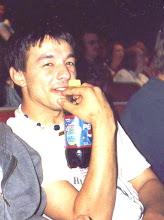Drug-law changes fail (South Dakota)
http://www.aberdeennews.com/mld/aberdeennews/news/13942939.htm
JOE KAFKA
Associated Press
PIERRE, S.D. - An effort to eliminate mandatory minimum sentences for many drug crimes while increasing maximum prison terms for those offenses has been rejected by the state Senate Judiciary Committee.
Opposition to HB1150 came from Attorney General Larry Long and Gov. Mike Rounds.
The measure was proposed by the Criminal Code Revision Commission, said Rep. Sean O'Brien, R-Brookings, who served on the panel.
He said mandatory minimum penalties for drug crimes should be eliminated because judges are in the best position to decide proper sentences based on the circumstances of each drug conviction.
"We ought not to be telling our judges what type of sentence that they should give to an individual," O'Brien said.
There's no need for the change because current law gives judges the option of not imposing mandatory minimum sentences if mitigating circumstances exist, said Charlie McGuigan, an assistant attorney general.
Attorney General Larry Long said the prospect of mandatory minimum penalties gives prosecutors leverage to move up the drug ladder.
"Everybody wants to get from the users to the dealers and distributors," Long said. "We trade jail time for information."
Neil Fulton, lobbyist for the governor, said it sends the wrong message to change drug penalties. Drug dealers should be treated harshly, he said.
"These are people who are selling poison to the citizens of South Dakota and we think it's critical to keep those penalties where they are," Fulton said.
The bill also would have tied hard-drug penalties to the amounts of drugs seized by police. O'Brien said existing laws make no such connection. He said someone caught with a trace amount of methamphetamine is treated the same as another person who has a pound of the substance.
HB1150, rejected unanimously by the committee, also would have treated drug dealing tougher than simple drug possession, O'Brien said. Current law does not differentiate between the two, he said.
Also objecting to that provision, McGuigan said most drug cases involve less than a gram of illegal substances. That can be up eight doses of some drugs, he said.
Large drug busts are not common in South Dakota, and they usually involve arrests made on interstate highways, McGuigan said. Those drugs are less of a problem for South Dakota because they are passing through the state, he said.
The bill also should be killed because it would reduce penalties for marijuana possession, McGuigan said. Those involved with marijuana often are also immersed in meth, he said.
"Meth and marijuana go hand-in-hand," McGuigan said. "We hardly ever make a meth bust that doesn't involve marijuana."
The bill also would have allowed fines up to $100,000 for some drug convictions; the existing ceiling on those fines is $10,000.


0 Comments:
Post a Comment
Subscribe to Post Comments [Atom]
<< Home